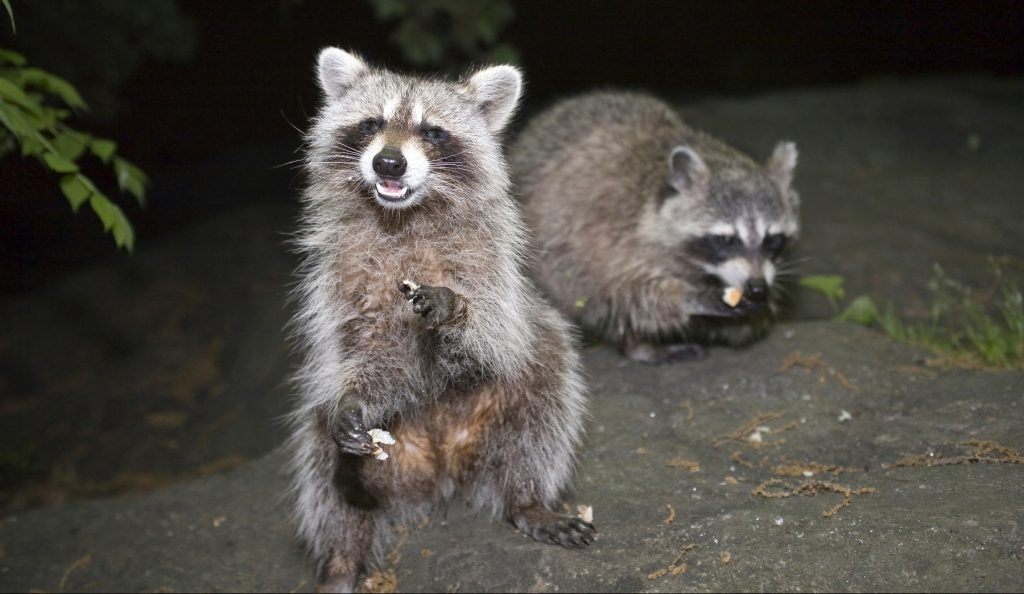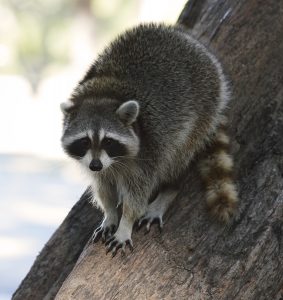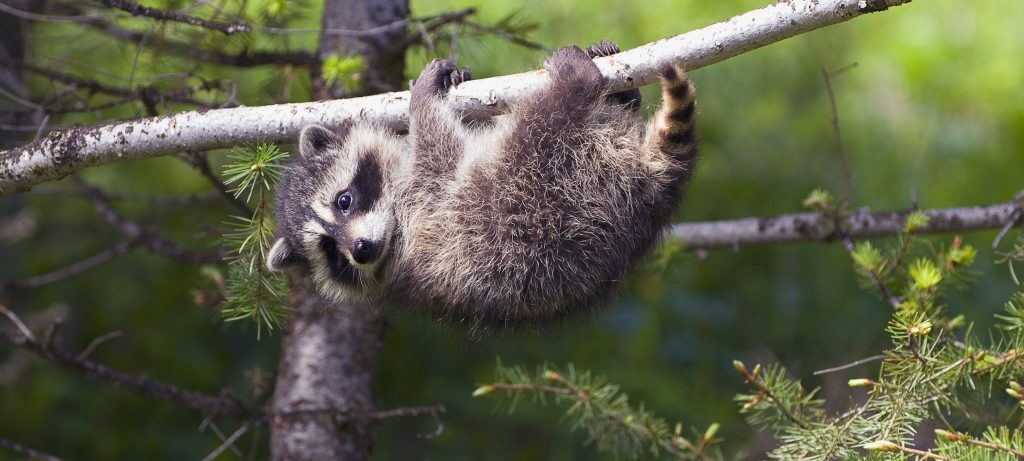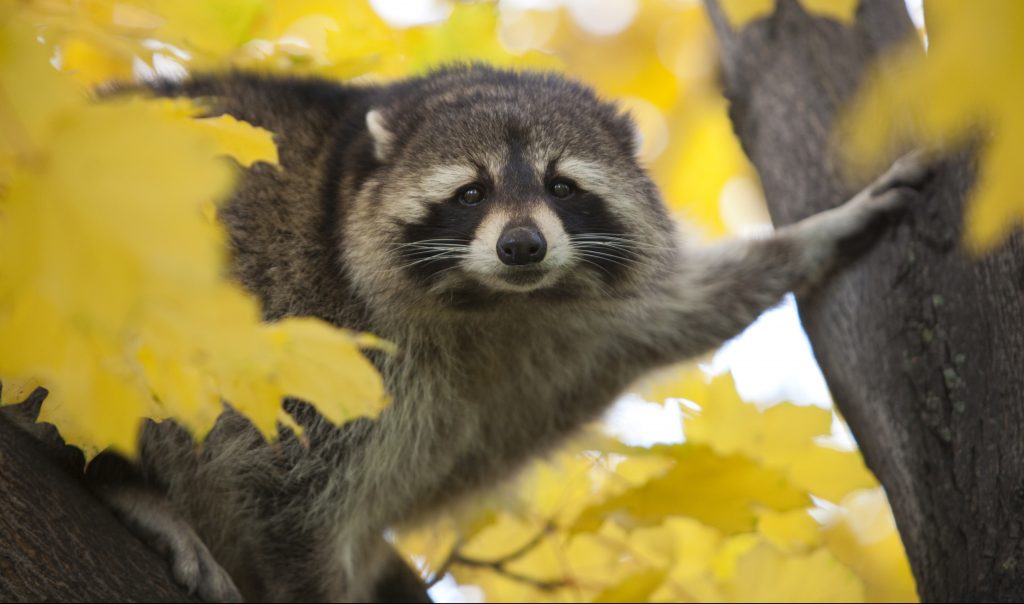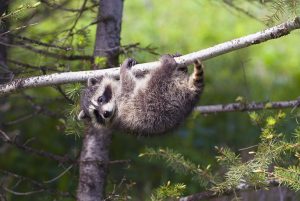When raccoons invade a house, they go on to cause a long list of structural damages. Not only do they rip through insulation, floorboards, electrical wiring, and window screens, they also soil and saturate everything in sight with their droppings and rotted food. So once you discover a raccoon infestation, chances are, damage has most certainly been done.
Faced with the realization that you need emergency raccoon removal service, followed by an ambiguous degree of renovation, your first thought might be about your home’s exposure to wildlife intrusions. Just how do raccoons get into a house? How can they accomplish such a sophisticated feat? Continue reading to learn the answer.
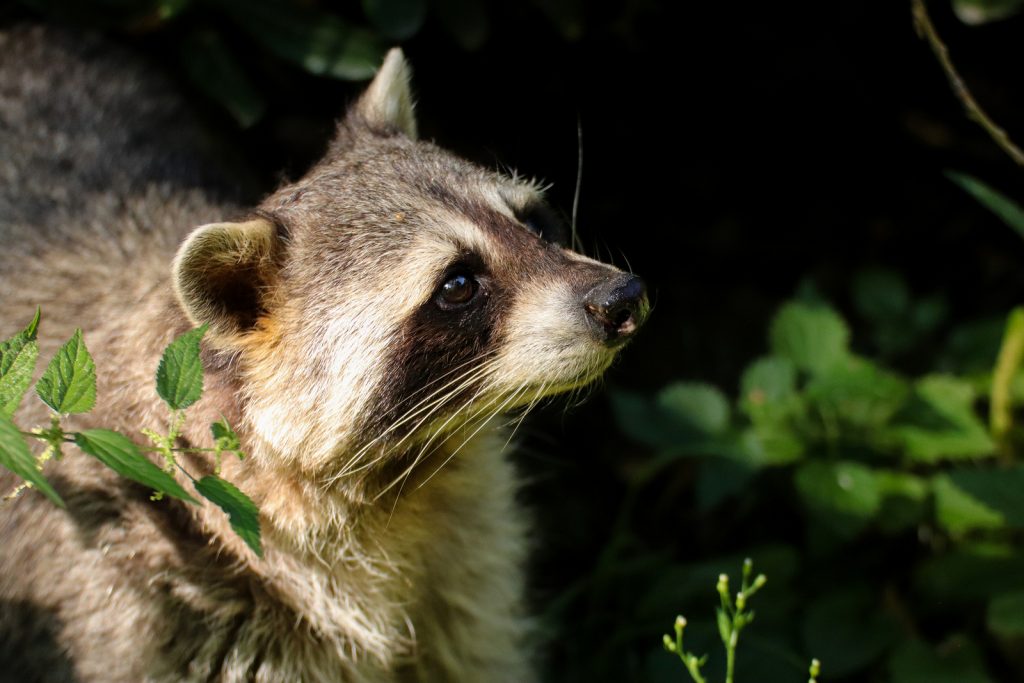
Raccoon Intrusions
Raccoons have human-like paws that are highly dexterous. Not only can they easily grasp, pull, twist, and lift, they also have long, sharp claws that provide them with a hefty advantage in terms of home intrusions. With these mighty paws and claws, raccoons can open doors, windows, and even unlock locks. Being an innately intelligent mammalian species, they can figure out puzzles, solve problems, and keep a good memory. All of these attributes plays into their ability to invade our homes.
If you leave a window or garage door open at night, that is an easy way in for any wild animal; but raccoons will find clever ways inside, even if all of your windows and doors are shut. Common target areas for raccoons to inspect for access include loose or missing roof shingles, crumbling mortar, rotted siding, chimneys, roof vents, and similar entry points. To learn how to protect your home from wildlife intrusions, read our article, “Animal-Proof Your Property Before Raccoons Begin Breeding this Spring” and get your house ready for nuisance raccoons.
What to Do if You Find Raccoons
As soon as you discover a raccoon, or a group of raccoons, inside of your home, your first priority is safety; so get all pets and people away from the area, and be sure it is secluded and secured. Next, immediately contact a wildlife control and rescue company for emergency raccoon removal services. They will show up promptly to extract the raccoons, safely and humanely.
Who to Call for Raccoon Removal and Control

Call us today at 502-553-7622 for professional Louisville raccoon removal services today. We offer a wide range of services for residential and commercial properties, including raccoon removal, control, prevention, proofing, cleanup, attic restorations, and more. Call 502-553-7622 to request a free estimate or information about Louisville raccoon control, today.


